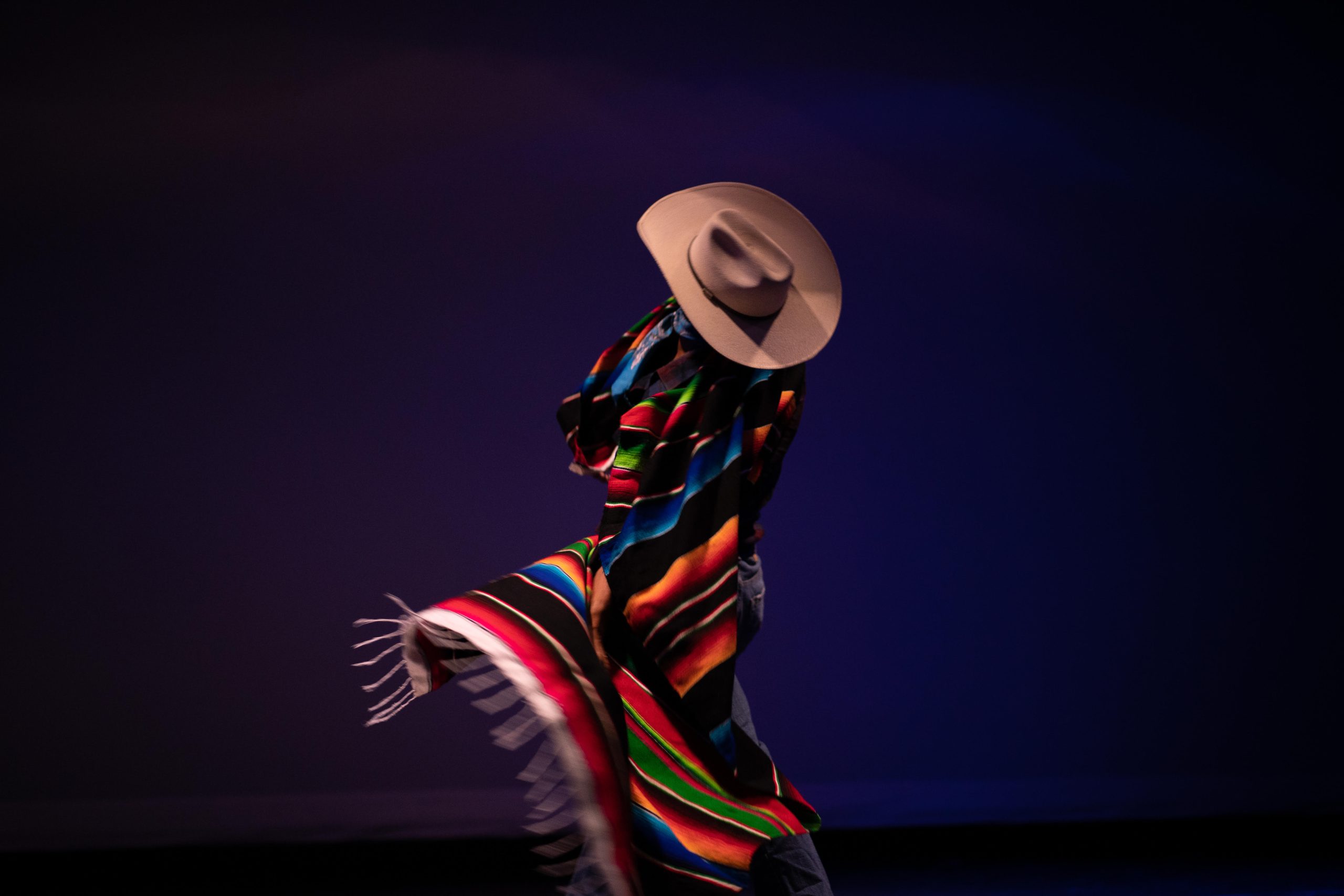Ticket holders who come to see playwright Lauren Yee’s King of the Yees will discover Signature Theatre’s black box dominated by monumental wooden doors painted bright red, with brass fixtures and ornate designs in faded leaf between two large windows overlooking San Francisco’s Chinatown. The playwright (as played by Sylvia Kwan) enters, explaining that the doors are on Waverly Place, a central hub within the city’s Chinatown—the largest in North America. It’s also the headquarters of Yee Fung Toy Family Association, an organization she regards as obsolete, and which her father, Larry Yee (Jacob Yeh) leads. One of a number of fraternal organizations formed in response to the Chinese Exclusion Act of 1882, this one unites Chinese immigrants with the surname Yee, who, according to lore, have a common Model Ancestor, Yee Shang–Cheung. Lauren regards this ancestor’s existence as a myth.
The illusion that one is about to experience a semiautobiographical two-hander about a father and a daughter is dispelled within minutes when both the “real” Larry (Grant Chang) and Lauren (Ashley D. Nguyen) make their entrances. The actor playing Larry is particularly fawning over the man he was just portraying. The “real” Lauren is annoyed that her proud father has disrupted the workshop of her simple, conventionally structured drama.
Of course the “real” Lauren on the stage is no more a true representation of the author than the Lauren who gave the opening narration. Some of the biographical details, however, match: an already successful playwright born in San Francisco, who attended Yale University (the real Lauren Yee also wrote Cambodian Rock Band, which played at Arena Stage earlier this year). But the real-world playwright revels in play-within-a-play meta-theatrics, which creates the illusion of chaos far more than anything either of her onstage avatars do: There are interludes when Jacob and Sylvia (the script specifies that the actor characters take the names of the actors playing them) discuss being Asian American actors, the techniques of good Chinese and Korean stage accents, and whether casting directors can tell the difference.
This leads to Lauren and Larry taking questions from Danny Ma (Nicholas Yenson), an American Chinese everyman, about the potential obsolescence of the theater (see Jared Strange’s City Paper story on making the current theatrical season). More questions come from community activist Jenny Pang (Kwan) about gentrification, exploitation of undocumented immigrant workers, and elder abuse in America’s Chinatowns. None of these questions are resolved. (Considering that D.C. used eminent domain to replace the city’s Chinatown with what is now Capital One Arena—reducing much of the neighborhood to Chinese language signage, building facades, historical makers, and approximately 90 percent fewer Chinese Americans—this might be an even more pressing question locally.)
The story takes a more traditional (albeit satirical) hero’s journey structure in its second half. The inciting incident is the real-life event that took place on March 26, 2014: California State Senator Leland Yee, for whom Larry has organized over decades on account of the lore that makes them cousins, is charged with counts of accepting bribes as well as conspiracy to traffic in firearms. (Leland Yee had ironically been a vocal advocate for gun control.) The organized crime boss Raymond “Shrimp Boy” Chow (also played by Yeh) was arrested in the same dragnet. Yee was sentenced to five years and was released in 2020; Chow is currently serving a life sentence.
Larry disappears, wanting to dissociate the Yee name from criminal associations, and Lauren must go on a quest to reconnect with him. What follows is an over-the-top, slow-motion “gun-fu” (a style of martial arts fighting first popularized by filmmaker John Woo) firefight between Shrimp Boy and an FBI agent (Kwan)—hilariously choreographed by Casey Kaleba; an appointment with Larry’s chiropractor with the “weird beard” (Yenson); a dance-off with a Chinese festival lion (Kwan doing expressive puppetry as the head of lion); haggling with liquor shop clerk, and more.
In some hands, a play this wild would quickly go off the rails (this is part of the reason why so many playwrights are encouraged to write the formulaic two-handers Yee’s alter ego set out to write). But director Jennifer Chang has a touch for spectacle and storytelling, as Yee simultaneously satirizes and elevates the mythos of Chinatown.
Perhaps the irony is that it is neither the revered ancestor nor her own father who most passionately implores the fictitious Lauren to tell the story of Chinatown, but Shrimp Boy. Costume designer Helen Q. Huang dresses the gangster in a flamboyant black jacket embroidered with green and purple blossoms, a sampling of the gorgeous fabrics Huang uses for both Shrimp Boy and the Model Ancestor.
Though they are never seen—only spoken of—Yee’s script also posits Jewish Americans as an other to Chinese Americans. Larry identifies the audience of Lauren’s play as Jews; and he mentions more than once that Lauren’s husband, Zachary Zwillinger, is Jewish. As Shrimp Boy awaits his stand-off with the FBI, his monologue turns to Jews, which Lauren initially views as a series of antisemitic tropes. The gangster clarifies that he is simply admiring another one of America’s “model minorities” (one presumed to be heavily represented in the audience). Shrimp Boy may be making a point about controlling one’s narrative (the real Raymond Chow has written an unpublished memoir of his criminal career), but in the years since King of the Yees premiered in 2015, hate crimes against both Asian Americans and Jewish Americans has increased, and both communities have had their turns being blamed for the COVID-19 pandemic, underlining just how precarious model minority status can be.
Lauren Yee’s King of the Yees, directed by Jennifer Chang, runs through Oct. 22 at Signature Theatre. sigtheatre.org. $40–$93.




